Middle Tennessee State University officials and Southwest Airlines representatives marked the official takeoff of the university’s status as part of the Southwest Destination 225° Pilot Pathways program with a signing ceremony on Wednesday, Sept. 6, on campus.
With MTSU Aerospace students in attendance, officials, including university President Sidney A. McPhee, signed the ceremonial documents in the State Farm Lecture Hall in the MTSU Business and Aerospace Building. The event was followed by an informational session for interested students presented by Southwest pilots representing the Destination 225° program.

On a compass rose, 225° is the southwest heading, and the Destination 225° program provides several pathways designed to meet future aviators where they are at their current experience level and create opportunities to take them to the right seat of a Southwest aircraft.

With 900 professional flight majors in fall 2022, MTSU aerospace students have access to a pathway that leads to becoming competitively qualified for a commercial pilot career at Southwest. The Destination 225° program includes pathways for pilots who are just starting to fly, those working on a university degree and those already building time toward their Airline Transport Pilot certificate.

“MTSU’s inclusion in the Destination 225° program has elevated our Aerospace program to even greater heights — or should I say, altitude,” said McPhee, noting that MTSU is among 12 of the nation’s top collegiate flight training programs in the Destination 225° university pathway.
“Over the past 80-plus years, our Aerospace program has prepared generations of expertly trained pilots. Today, MTSU Aerospace alumni fly for every major airline in the world.”
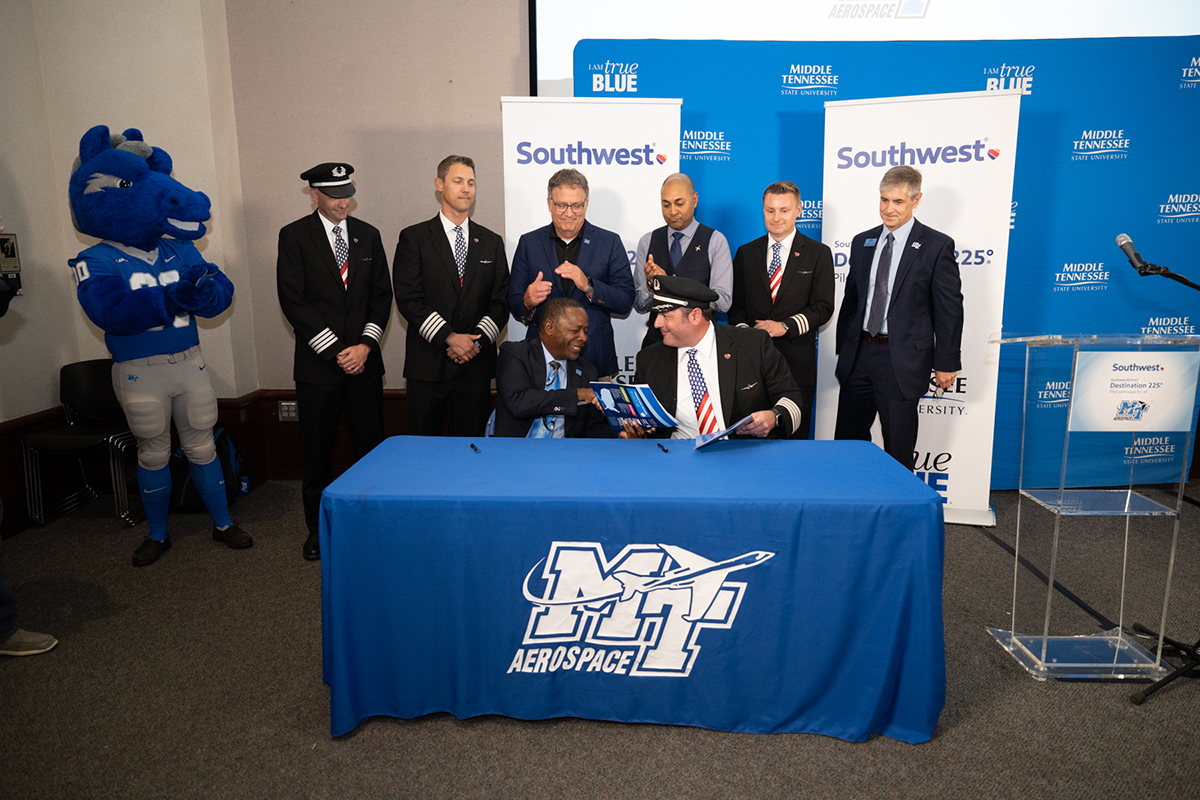
McPhee thanked Provost Mark Byrnes, College of Basic and Applied Sciences Dean Greg Van Patten and Chair Chaminda Prelis “for their strong and sustained leadership.”
Acknowledging “I’m a Blue Raider,” alumnus and Southwest First Officer Chris Collins, who is a Destination 225° lead mentor and will work directly with MTSU Aerospace, said the university “was the bedrock — the foundation to my career all started here. … the inspiration that was given to me by people while I was here drove me to this place (Southwest).”
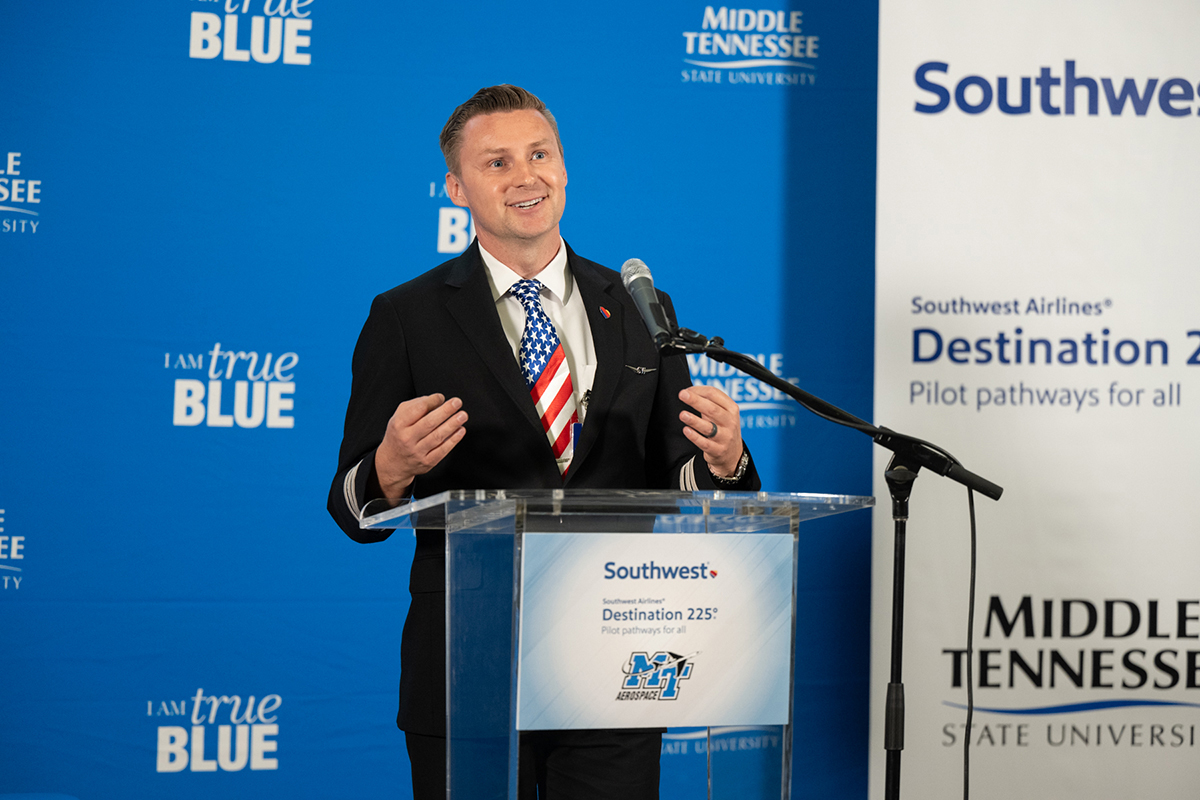
Collins, who attended and graduated from MTSU two decades ago, said faculty Gail Zlotky, Gerald Hill, who have retired, and Paul Craig played inspired and challenged him as a student.

Calling it “another momentous event in the history of Aerospace,” Prelis said he’s “excited about the possibilities we have opened in this new partnership with Southwest Airlines. Destination 225° paves an avenue for our students to consider on their journey to becoming professionals in support of the aerospace industry.”

Current student Reed Sculley, 20, a junior professional pilot major from Nashville, Tennessee, said “Southwest is a dream because of their culture. They take care of the internal customer (employees), so you know they will take care of customers. … The people here are fun. They want people who are fun to be around. This (Destination 225°) program allows the direct path from MTSU to the airline.”
Recent graduate Briana “Bri” McDonald, 22, of Jackson, Tennessee, who’s going through the process of applying to the program, said the opportunity “is really beneficial for students to explore a wonderful company.” She has networked with Southwest pilots and staff at events “and they kept encouraging me to do the program.”
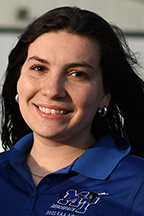
McPhee said that MTSU has “steadily earned a distinguished reputation as one of the collegiate aviation’s largest and most respected programs in the country” and that Aerospace is the university’s largest academic major.
The president said to accommodate growing student demand and industry needs, MTSU is embarking on an almost $100 million project with nearby Shelbyville and Bedford County “to build a state-of-the-art aerospace campus,” with Tennessee Gov. Bill Lee scheduled to formally announce the project at Shelbyville Airport on Sept. 21.
MTSU joins current Destination 225° university partners Angelo State University, Arizona State University, Auburn University, Baylor University, Louisiana Tech University, Kent State University, Southeastern Oklahoma State University, Texas Southern University, the University of Nebraska at Omaha and The University of Oklahoma.
— Randy Weiler (Randy.Weiler@mtsu.edu)
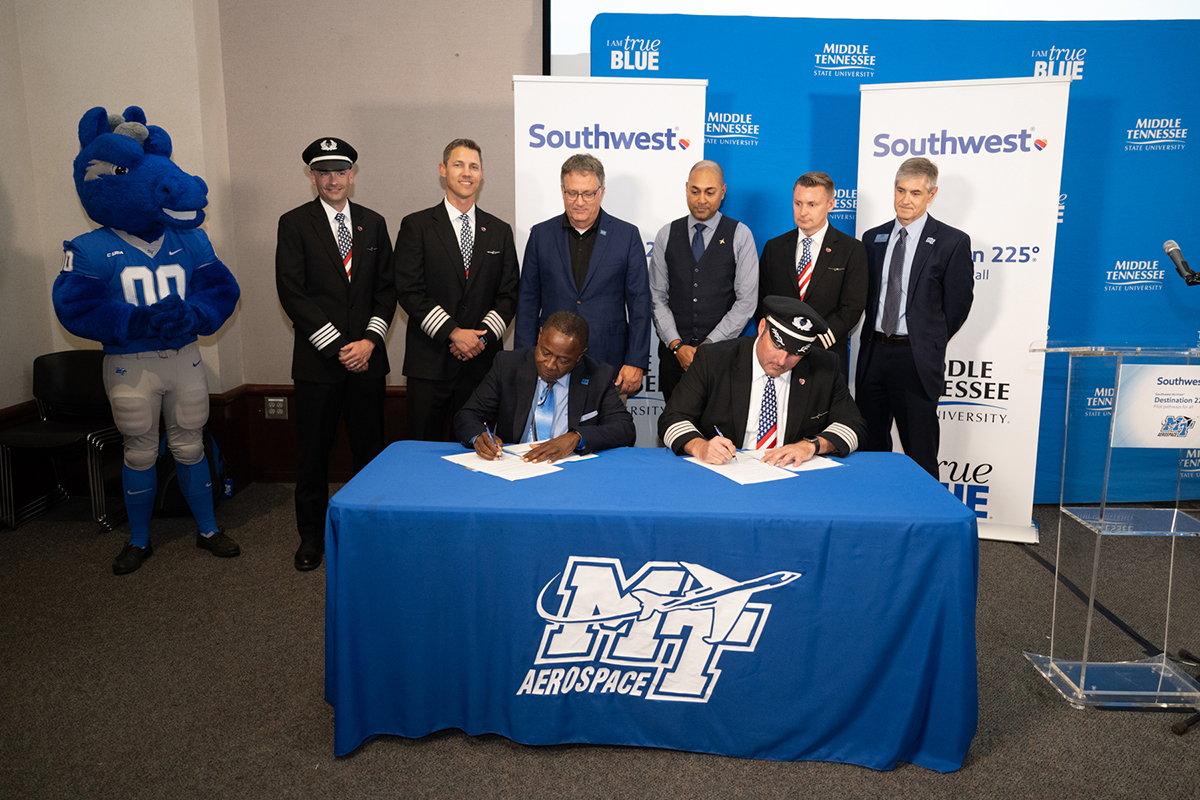
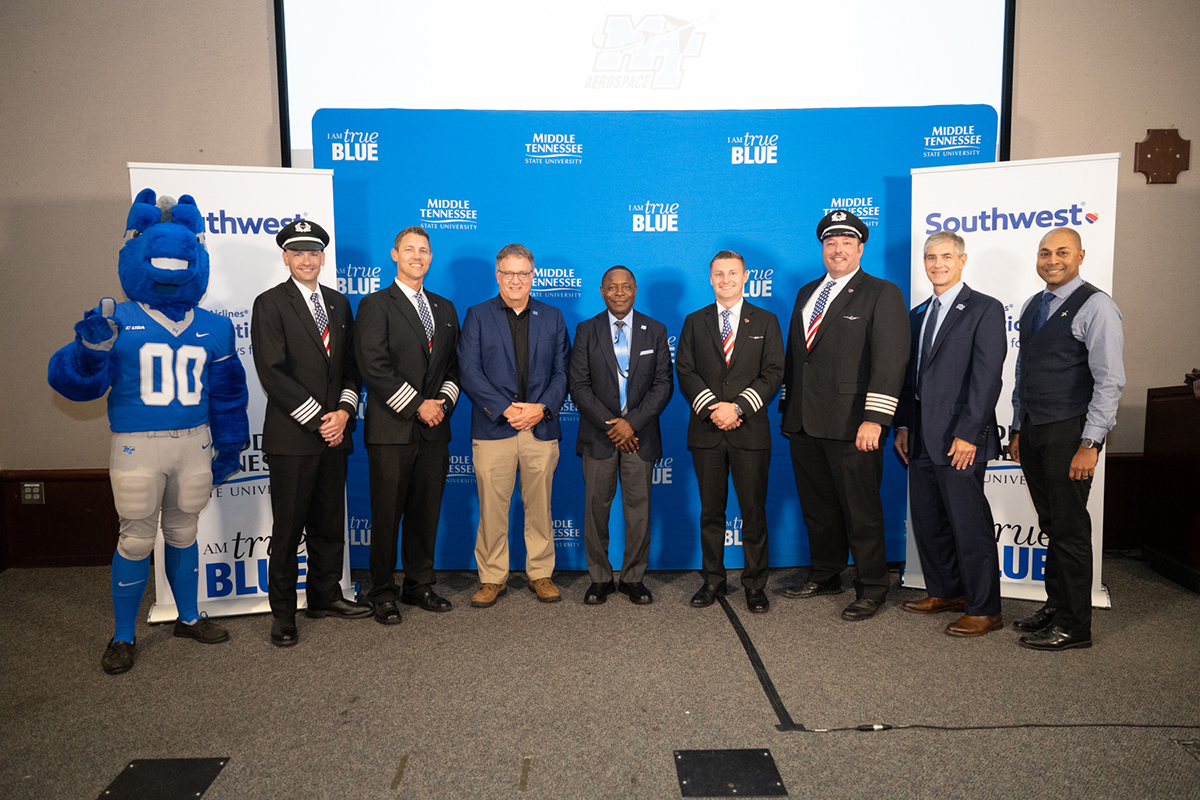

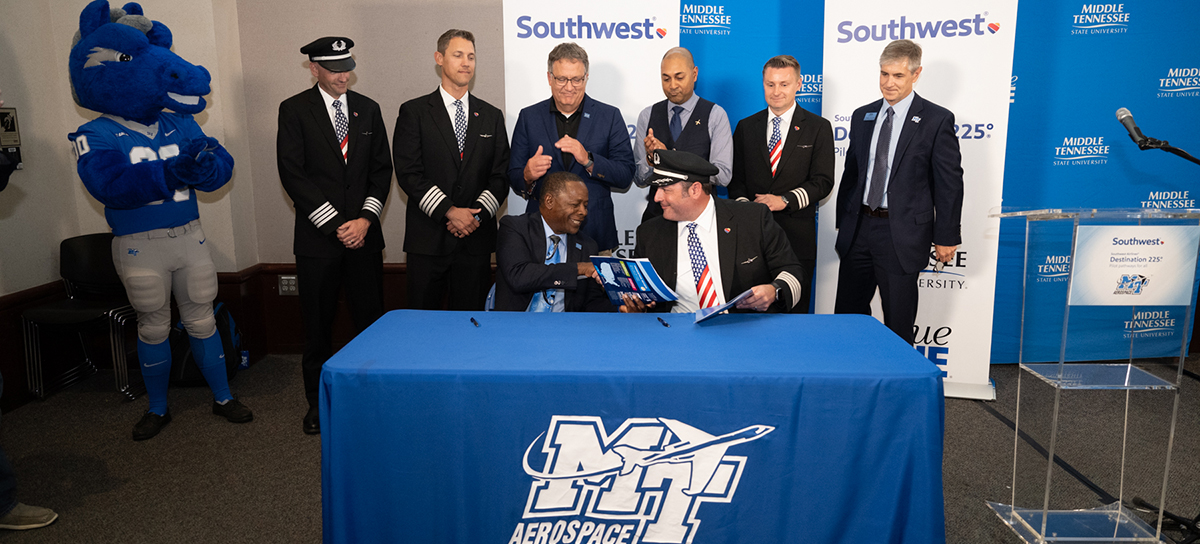
COMMENTS ARE OFF THIS POST